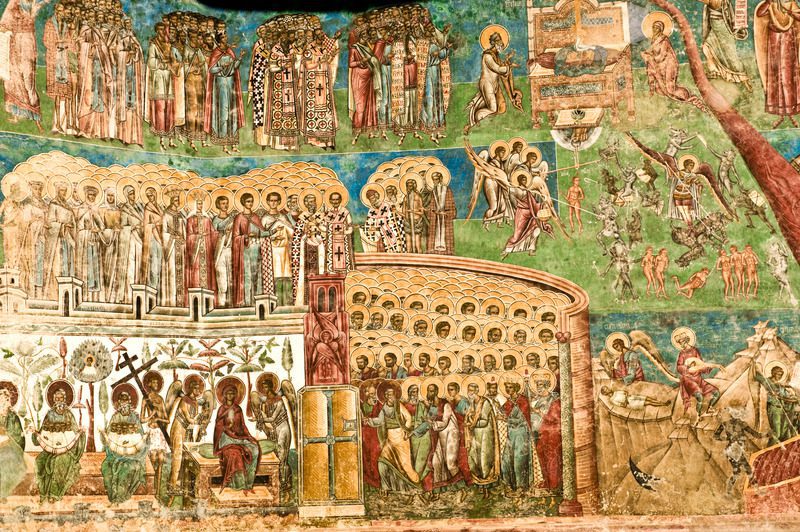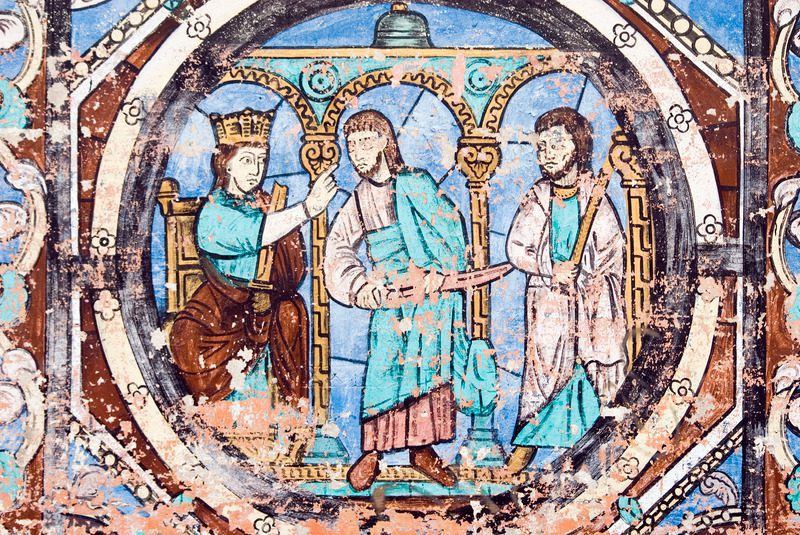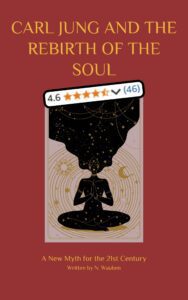Table of Contents
Introduction
We humans seem quite convinced that we are capable of making our own conscious rational choices. We do not really question this capability and we are quite certain that we possess something called ‘free will’. The online Cambridge Dictionary describes free will as: “The ability to decide what to do independently of any outside influence”. We attach a lot of value to this notion of free will. However, after reading Aion, written by Carl Jung, one might seriously start to doubt whether we possess this capability in the first place.
Do we possess something called free will? This is a rather scary and perhaps even dangerous question, but I believe it is an interesting topic to analyse further. In case you want to learn more about the general content of Carl Jung’s AIon, you can find my full summary and analysis of Aion here: A Summary and Analysis of Carl Jung’s Aion.
The Ego and The Self
For this discussion it is important to first have a look at two important concepts found throughout most of Carl Jungs’ work: the ego and the self. The ego is fundamentally the personality that an individual shows to the world and the personality that he or she is consciously aware of. The ego is developed through an individual’s interaction with the external and internal world.
Carl Jung, however, believed that the ego does not encompass the entirety of an individual’s personality. Instead, the ego consists only of the conscious part of an individual’s personality: “this would never amount to more than a picture of the conscious personality; all those features which are unknown or unconscious to the subject would be missing.” (p.5) In fact, Carl Jung proposed that these unconscious features might even be more important than the conscious features: “This unconscious portion, as experience has abundantly shown, is by no means unimportant. On the contrary, the most decisive qualities in a person are often unconscious and can be perceived only by others, or have to be laboriously discovered with outside help.” (p.5) Carl Jung called the entirety of an individual’s personality, the combination of the the conscious personality (the ego) and the unconscious personality, the self.
The Relationship Between The Ego and The Self
We like to think that our ego is the dominant part of the self and therefore in control. However, according to Carl Jung, this is not the case, in fact, Carl Jung argued that it is the other way around: “The ego is, by definition subordinate to the self and is related to it like a part to the whole. Inside the field of consciousness it has, as we say, free will. […] But, just as our free will clashes with necessity in the outside world, so also it finds its limits outside the field of consciousness in the subjective inner world, where it comes into conflict with the facts of the self.” (Ibid)
Similarly, to things happening in the outside world that we cannot control, Jung believed that these kinds of things also happen in the internal world: “just as circumstances or outside events “happen” to us and limit our freedom, so the self acts upon the ego like an objective occurrence which free will can do very little to alter.” (P.6) In this sense,just as bad weather might hinder you from going to the beach, an internal storm might likewise hinder you from doing what you want to do.
Perhaps even more scary, Carl Jung believed that the self can at any point in time completely change the ego: “It is indeed well known that the ego not only can do nothing against the self, but is sometimes actually assimilated by unconscious components of the personality that are in the process of development and is greatly altered by them.” (p.6) As such, besides not being entirely in control of our own conscious personality, because of the unconscious events that can ‘happen’ at any point in time, we are not even in control of what our conscious personality even is, because it can always be altered by the unconscious forces of the self.

The Unconscious Archetypes
These unconscious forces that can have an unimagined impact upon the ego are, as observed by Carl Jung, comprised of several archetypes, which are a sort of entities or symbols that are a part of an individual’s unconscious personality. These archetypes form the collective unconscious and have been passed on to an individual by his or her ancestors (which is an interesting topic for another post).
The archetypes that have the largest impact on the ego are, according to Carl Jung, the shadow, the anima and the animus. For now I will only have a look at the shadow because I believe that the shadow archetype already sufficiently indicates to what extent these unconscious forces can impact one’s behaviour, and thereby already significantly contributes to our present discussion on free will.
An individual’s shadow consists of an individuals’ dark characteristics. According to Jung the shadow can have a major impact upon the emotional state of an individual: “Closer examination of the dark characteristics – that is, the inferiorities constituting the shadow – reveals that they have an emotional nature, a kind of autonomy, and accordingly an obsessive or, better, possessive quality. Emotion, incidentally, is not an activity of the individual but something that happens to him.” (p.9)
An individual might ‘project’ the characteristics of his or her shadow upon the world, a form of behaviour that happens unconsciously: “As we know, it is not the conscious subject but the unconscious which does the projecting. Hence one meets with projections, one does not make them.” (Ibid) For example, an individual might curse the world because he or she believes the world is an unfair place (Nietzsche’s Tarantulas, for example). This individual might, however, do so because he or she is, unconsciously, extremely resentful. Thereby this individual unconsciously creates an imagined world through projections: “The effect of projection is to isolate the subject from his environment, since instead of a real relation to it there is now only an illusory one. Projections change the world into the replica of one’s own unknown face. In the last analysis, therefore, they lead to an autoerotic or autistic condition in which one dreams a world whose reality remains forever unattainable.” (Ibid)
Although I will leave the anima and animus archetypes for a later discussion, it is interesting to mention, however, that the anima and animus are perhaps even more dangerous to an individual’s conscious integrity because, as opposed to the shadow, they are even further removed from one’s own conscious control: “It is quite within the bounds of possibility for a man to recognize the relative evil of his nature, but it is a rare and shattering experience for him to gaze into the face of absolute evil.” (p.10) I will return to these archetypes in another post.
Free Will
From these observations made by Carl Jung we can deduct that we are not always capable of making our own conscious rational choices. We have seen that our conscious ego is almost incessantly under the influence of the larger all-encompassing self which also contains our unconscious characteristics. Moreover, According to Carl Jung, these unconscious characteristics are composed of several archetypes that are a part of a larger collective unconscious which has been passed on to us through years of ‘mental’ evolution.
Carl Jung indicated that these unconscious factors combined can not only impact one’s behaviour but can completely change one’s personality. Does this then mean that we are to a large degree only a vehicle for our unconscious personalities? And might this mean that we humans do not possess free will?
Carl Jung observed that individuals often consult an unconscious or higher inner authority during their decision-making process. Jung believed that: “One can describe this authority either as the “will of God” or as an “action of uncontrollable natural forces,”” (P.26) If we describe this authority as ‘natural forces’, then this might hurt our ego because it would mean that our instincts are in control of our behaviour: “hence we like to persuade ourselves that the matter has been decided solely by the rational motions of the will. Civilized man has such a fear of the “crimen laesae maiestatis humanae” that whenever possible he indulges in a retrospective coloration of the facts in order to cover up the feeling of having suffered a moral defeat.” (Ibid) If, instead, we describe this higher authority as a divine force, then our self-esteem remains intact because we are merely obedient towards this divine power.
Within this decision-making process, the inner authority (whether natural or divine) is always present: “The inner authority does not need to be consulted first, as it is present at the outset in the intensity of the tendencies struggling for decision.” (p.26) At the same time, the individual is trying to play a role in this process as well. Carl Jung, however, questioned to what degree the individual can actually influence this process: “In this struggle the individual is never a spectator only; he takes a part in it more or less “voluntarily” and tries to throw the weight of his feeling of moral freedom into the scales of decision. Nevertheless, it remains a matter of doubt how much his seemingly free decision has a causal, and possibly unconscious, motivation.” (Ibid) Jung observed that we might never truly come to understand to what degree the individual can influence this decision-making process: “The problem seems to me unanswerable, because we do not know where the roots of the feeling of moral freedom lie; and yet they exist no less surely than the instincts, which are felt as compelling forces.” (Ibid)
You might wonder whether we cannot simply consciously ignore these unconscious forces. However, according to Carl Jung, we cannot ignore or supress these unconscious forces because they will then only become stronger and even (more) dangerous : “The will can control them only in part. It may be able to suppress them, but it cannot alter their nature, and what is suppressed comes up again in another place in altered form, but this time loaded with a resentment that makes the otherwise harmless natural impulse our enemy.” (p.27)

Conclusions
At the beginning of this post, I have indicated that we usually take it for granted that we possess something called free will. However, if we analyse the ideas written down by Carl Jung in his book Aion, we might begin to question whether we possess free will.
Jung observed that our own conscious mind, which he also called the ego, is only the tip of the iceberg. Jung called the entirety of our conscious and unconscious personality the self, and within this self, the ego is arguably not the most powerful entity. Instead, it can even be argued that it is under the control of these unconscious forces, such as the shadow.
Carl Jung also indicated that there is a hidden inner authority (whether natural or divine) which plays and important role within the decision-making process of every individual. The individual (the ego) is then often merely a spectator within this process.
Although this is a rather complicated topic, I believe we can conclude that we do not possess free will in the way that it is defined by the Cambridge dictionary: “The ability to decide what to do independently of any outside influence”. Jung made some compelling arguments indicating that the unconscious forces, from the perspective of the ego, come from the outside, thereby making it feasible to argue that we do not possess the ability to decide what to do independently of any outside influence i.e., we do not possess free will.
In case this conclusion might harm your self-confidence, you do not have to worry too much. Carl Jung gave us a solution to this problem as well. We do not possess free will, as defined by the Cambridge Dictionary because, unconscious forces come from the outside, at least from the perspective of the ego. Carl Jung observed that we can try to assimilate these outside unconscious forces, hence making them conscious and therefore internalizing them: “the more numerous and the more significant the unconscious contents which are assimilated to the ego, the closer the approximation of the ego the self even though this approximation must be a never-ending process.” (p.23)
As you may have seen from the discussions on The Red Book (part1 and part2), this can be a long and even dangerous process. I will attempt to analyse this process further in a later post on this blog. Please subscribe to my newsletter to make sure you do not miss it 😊. Thank you for reading! And please let me know whether you think we possess free will.

